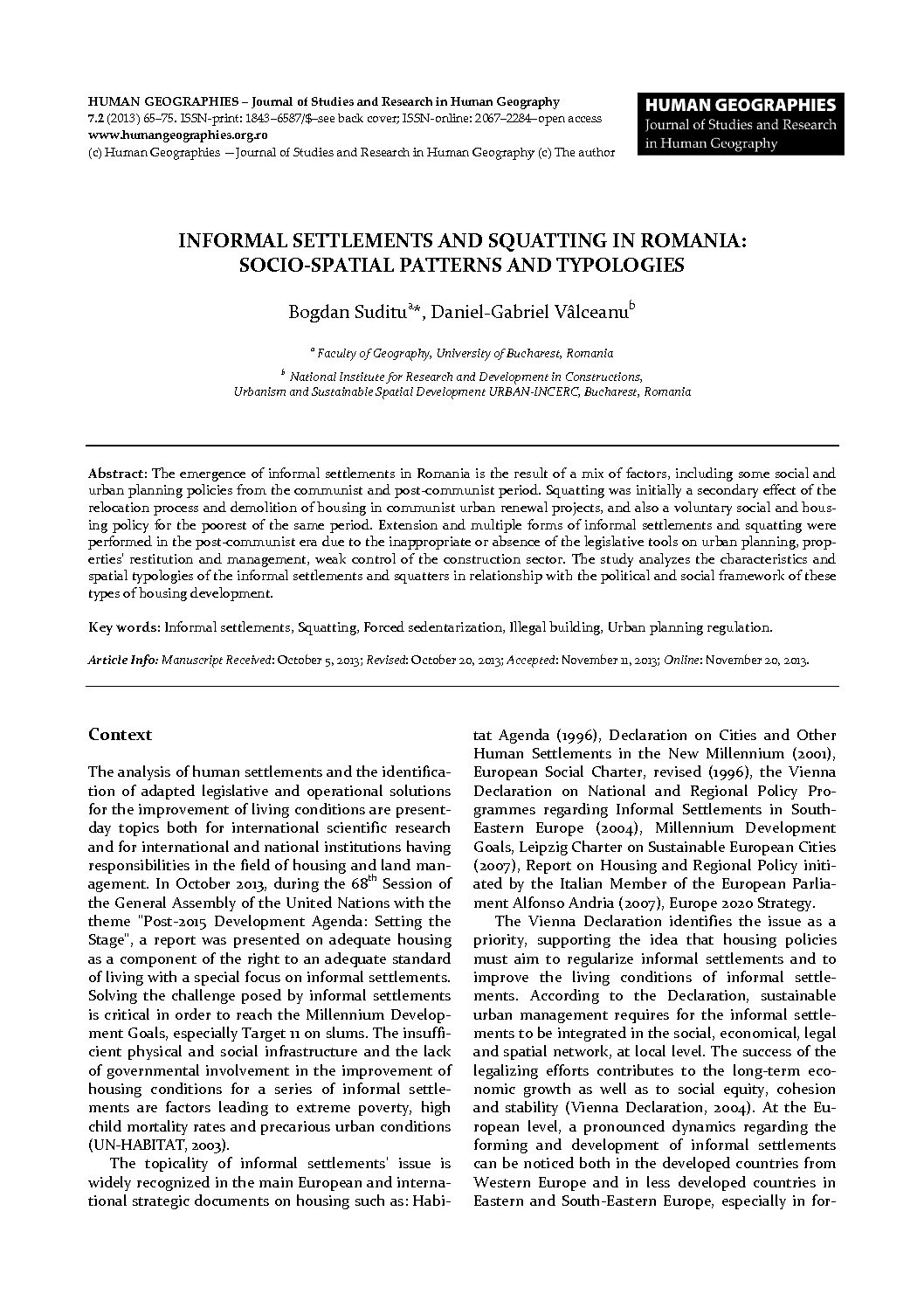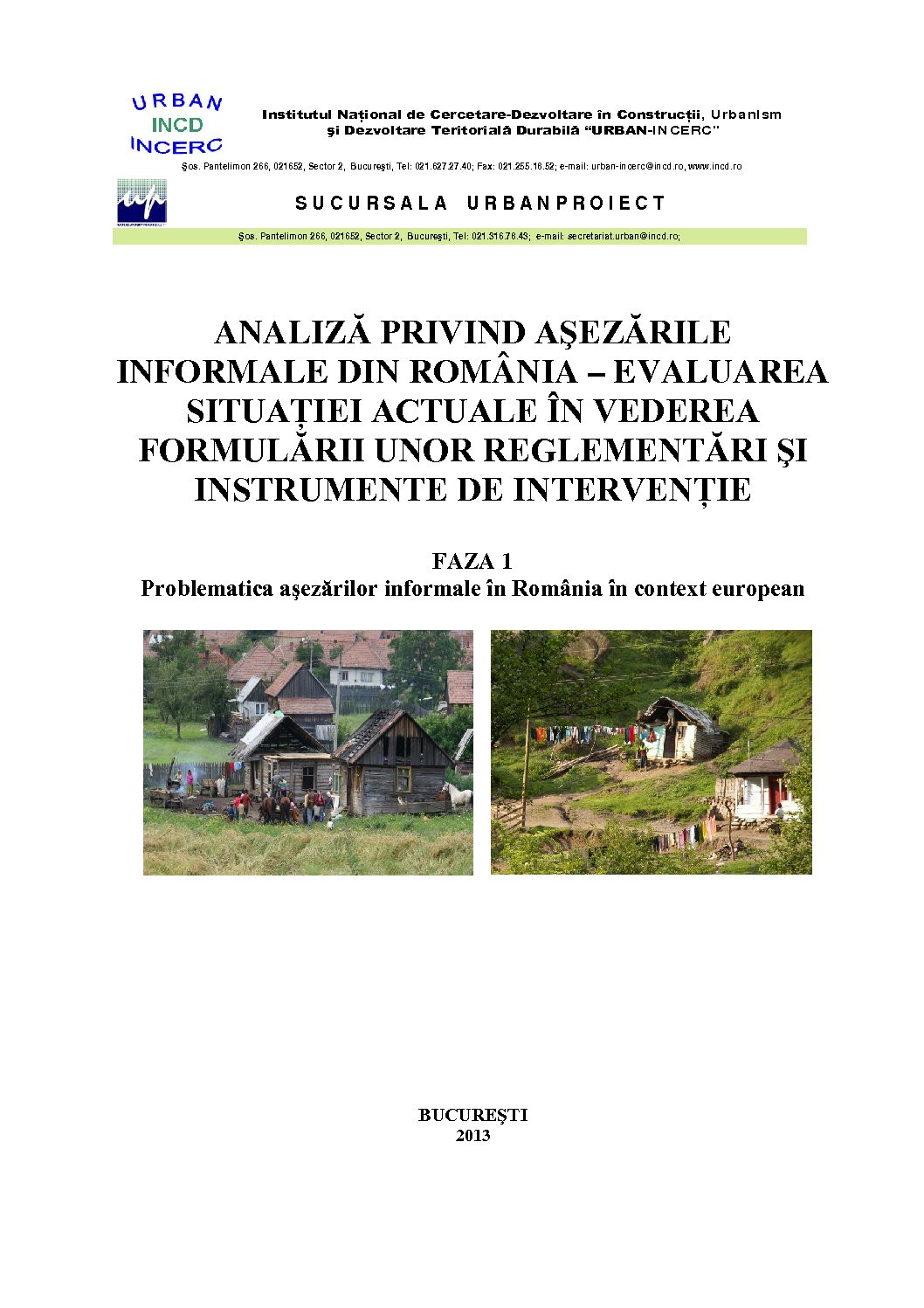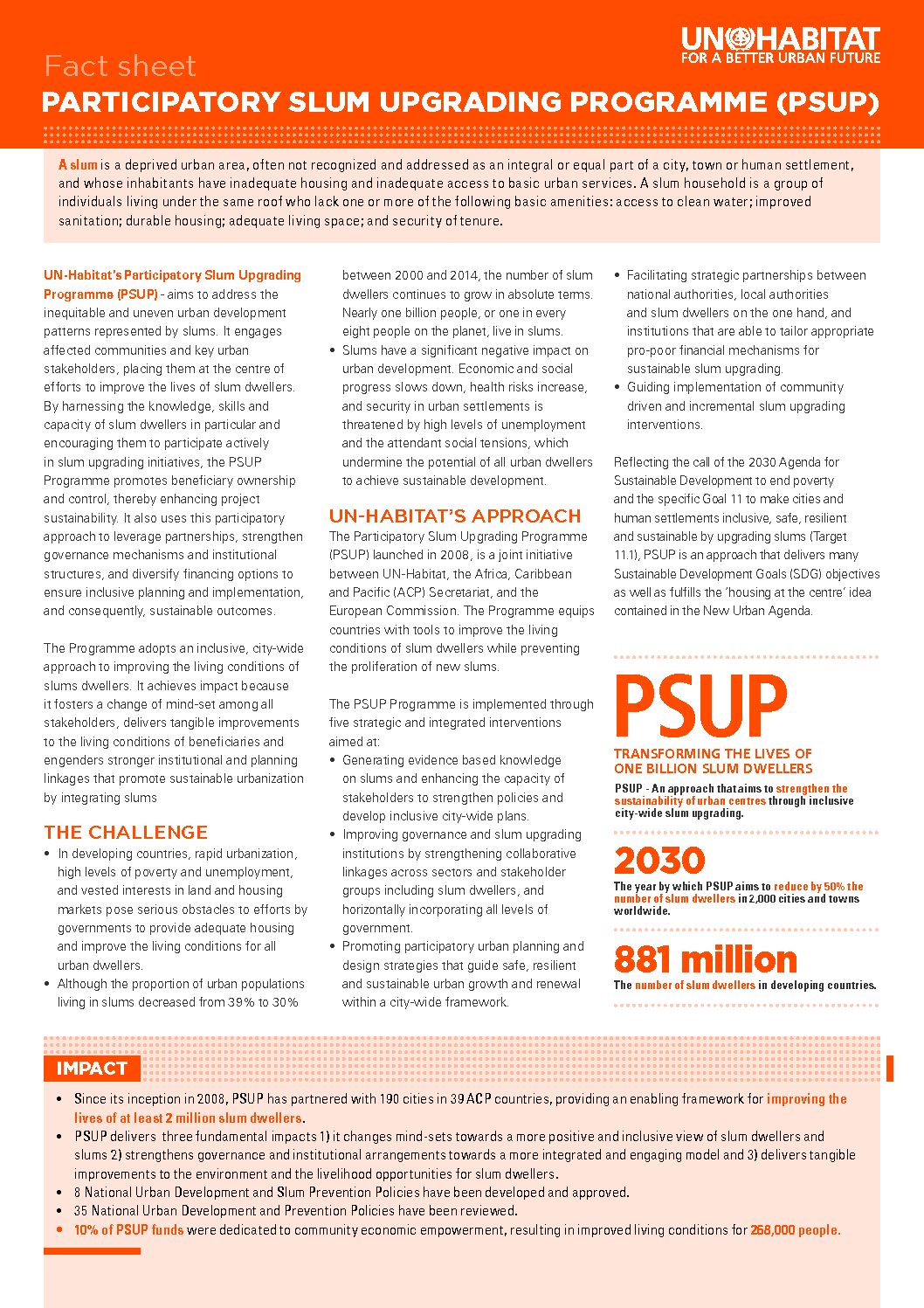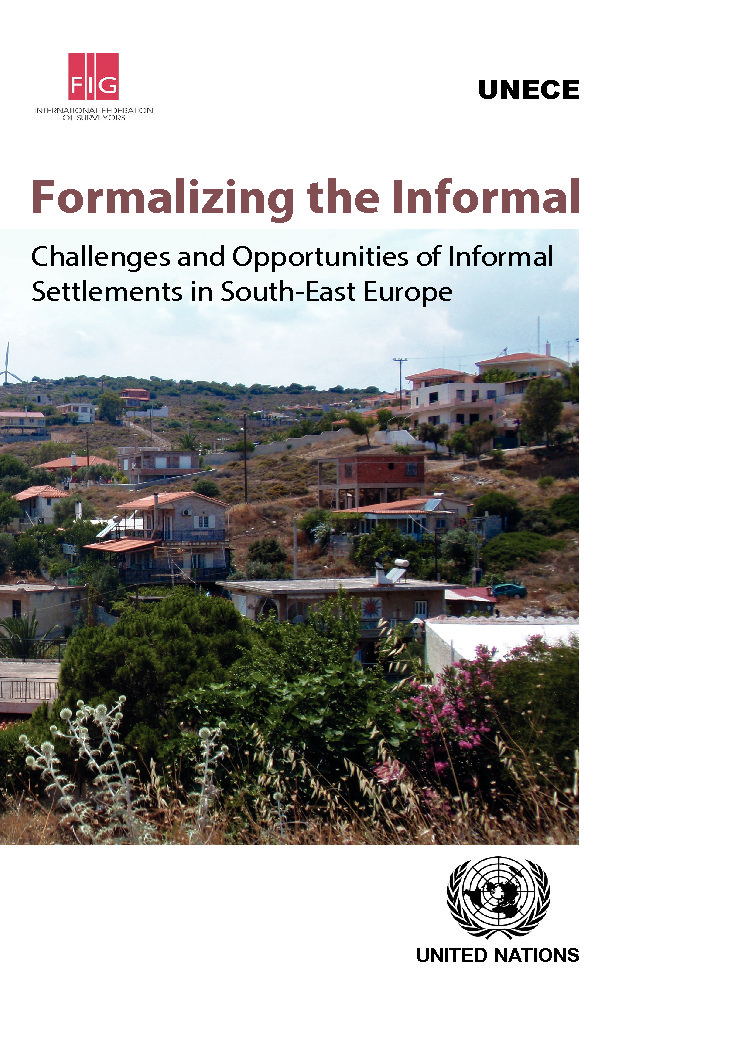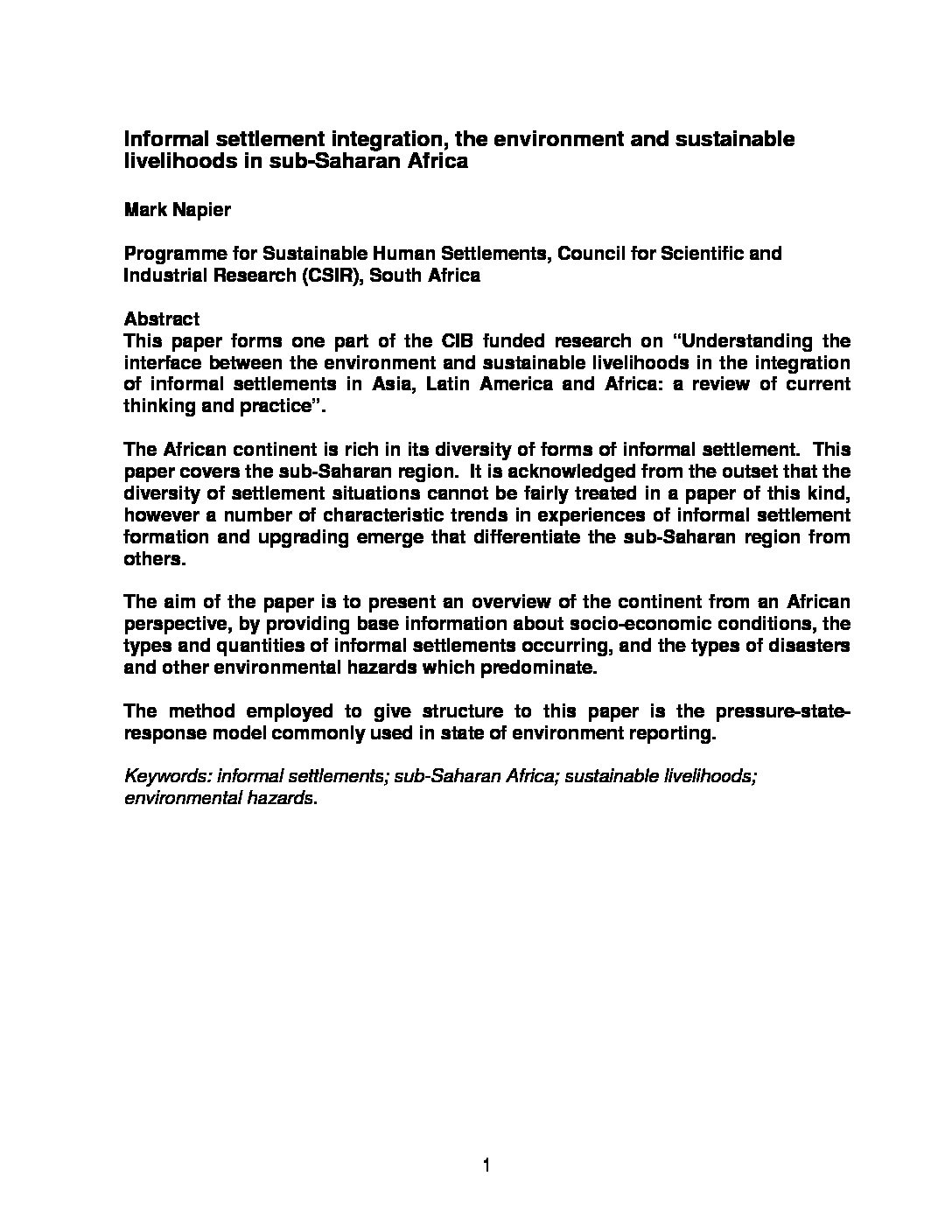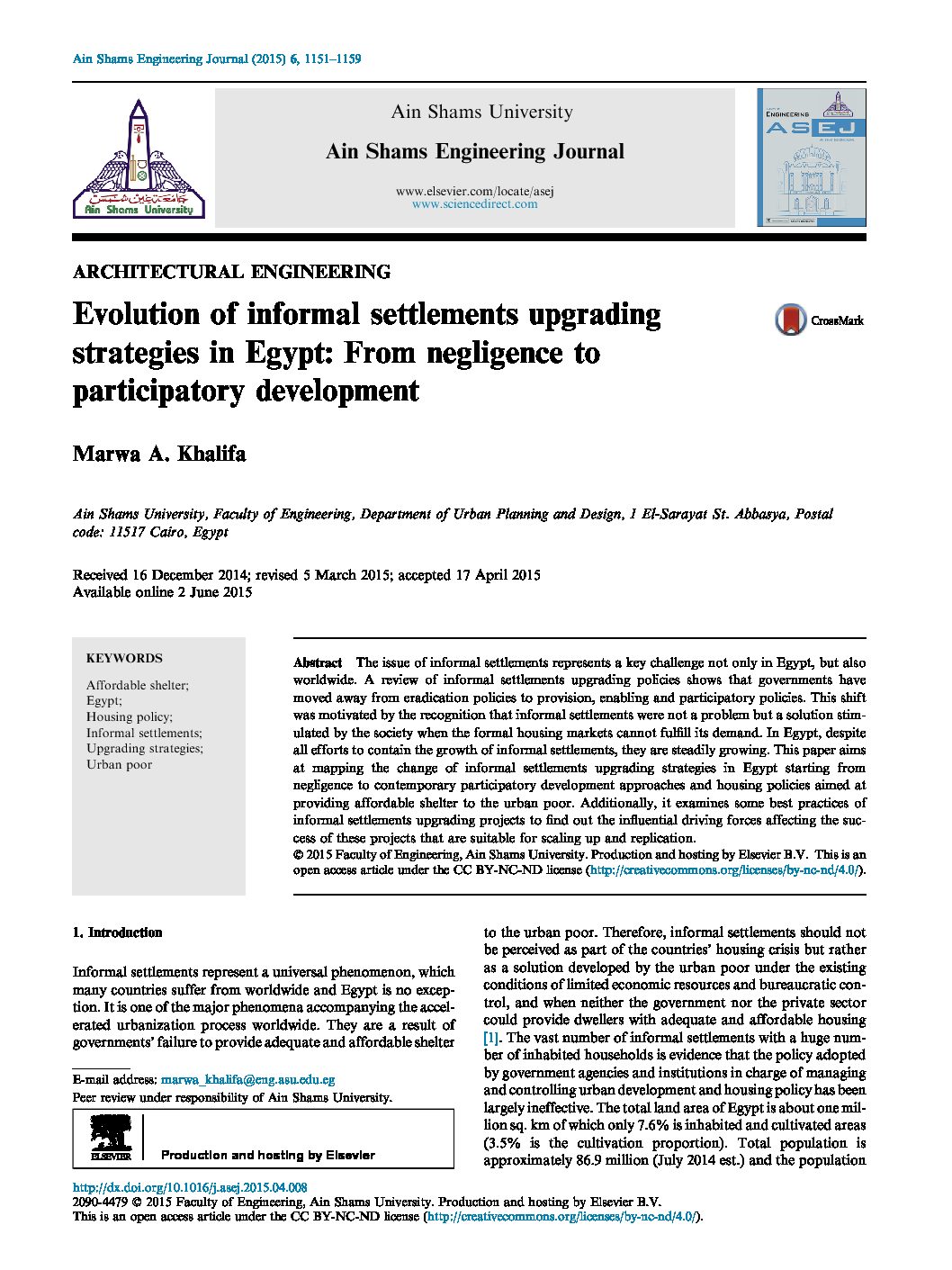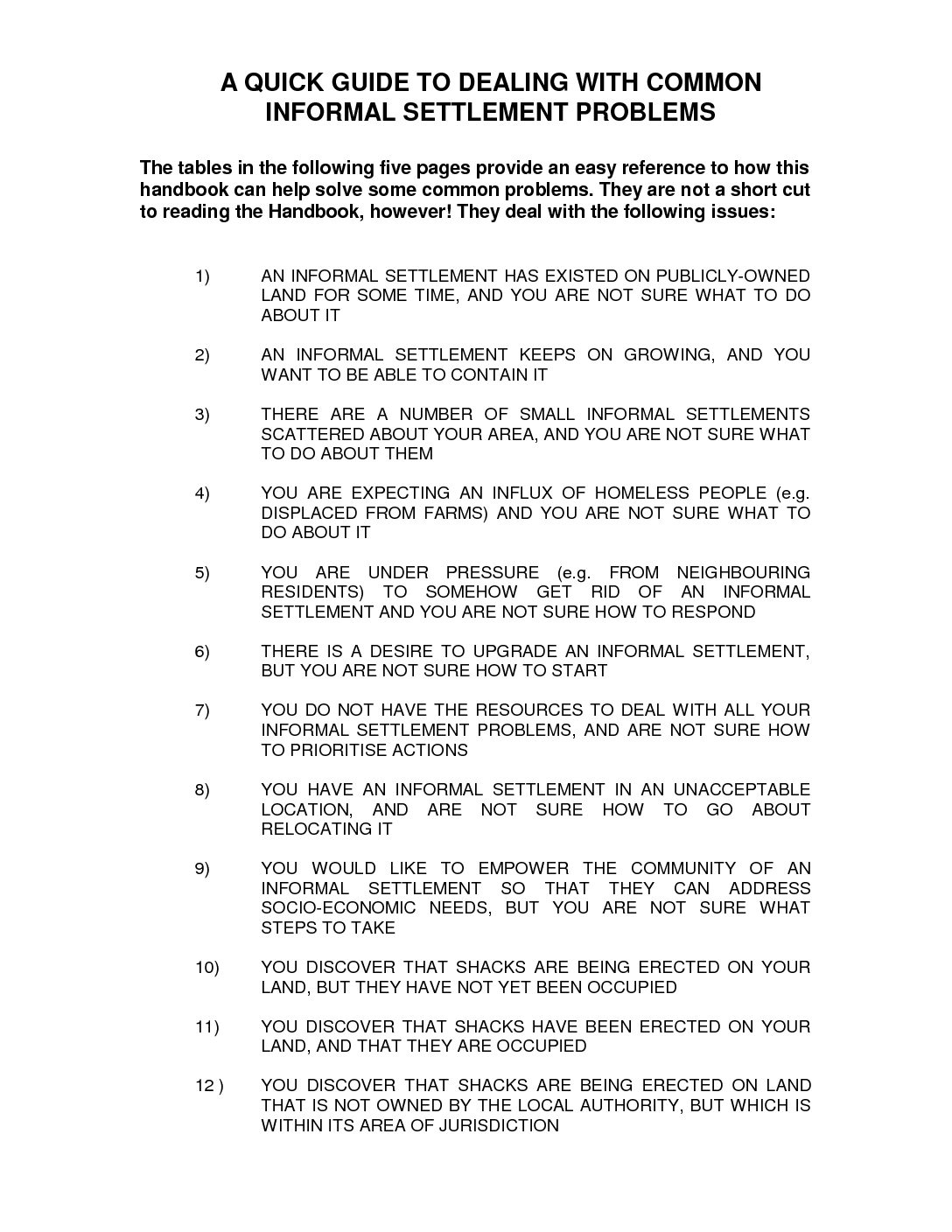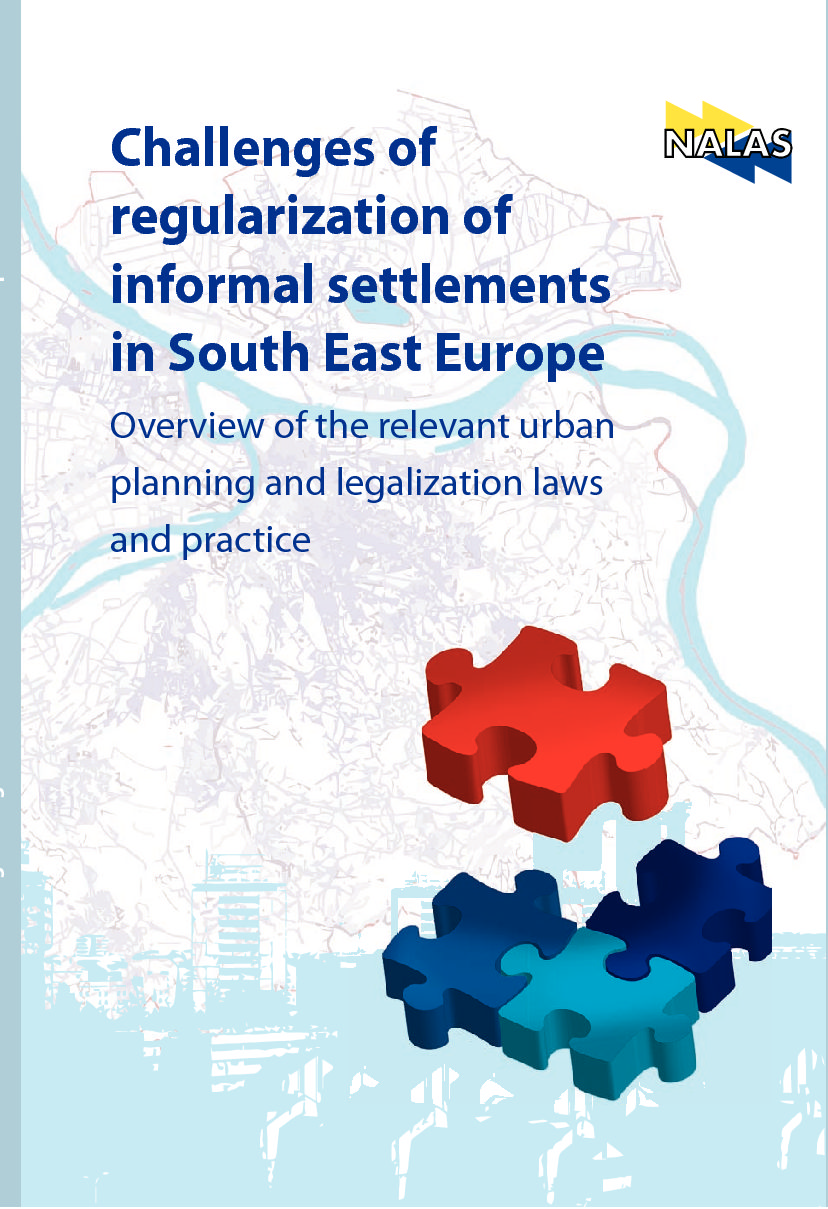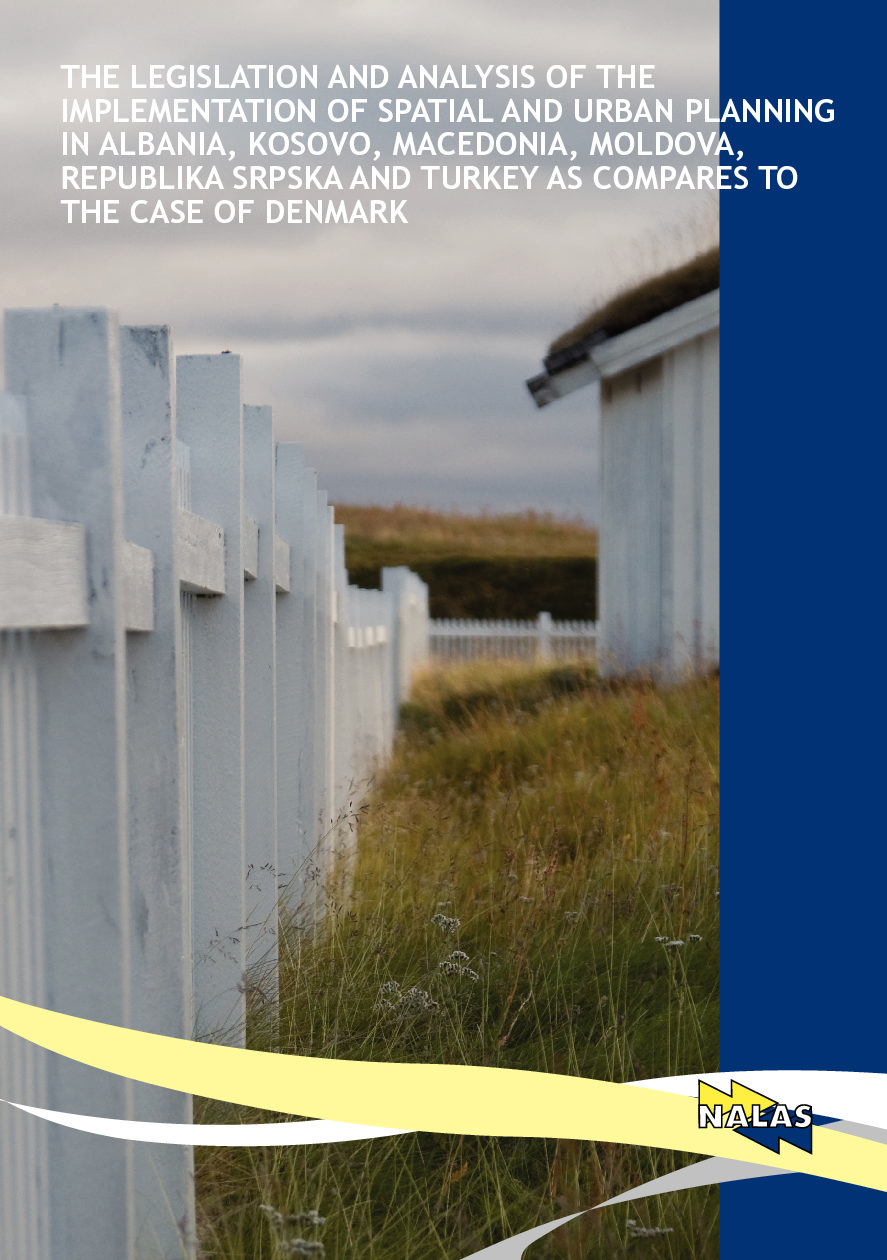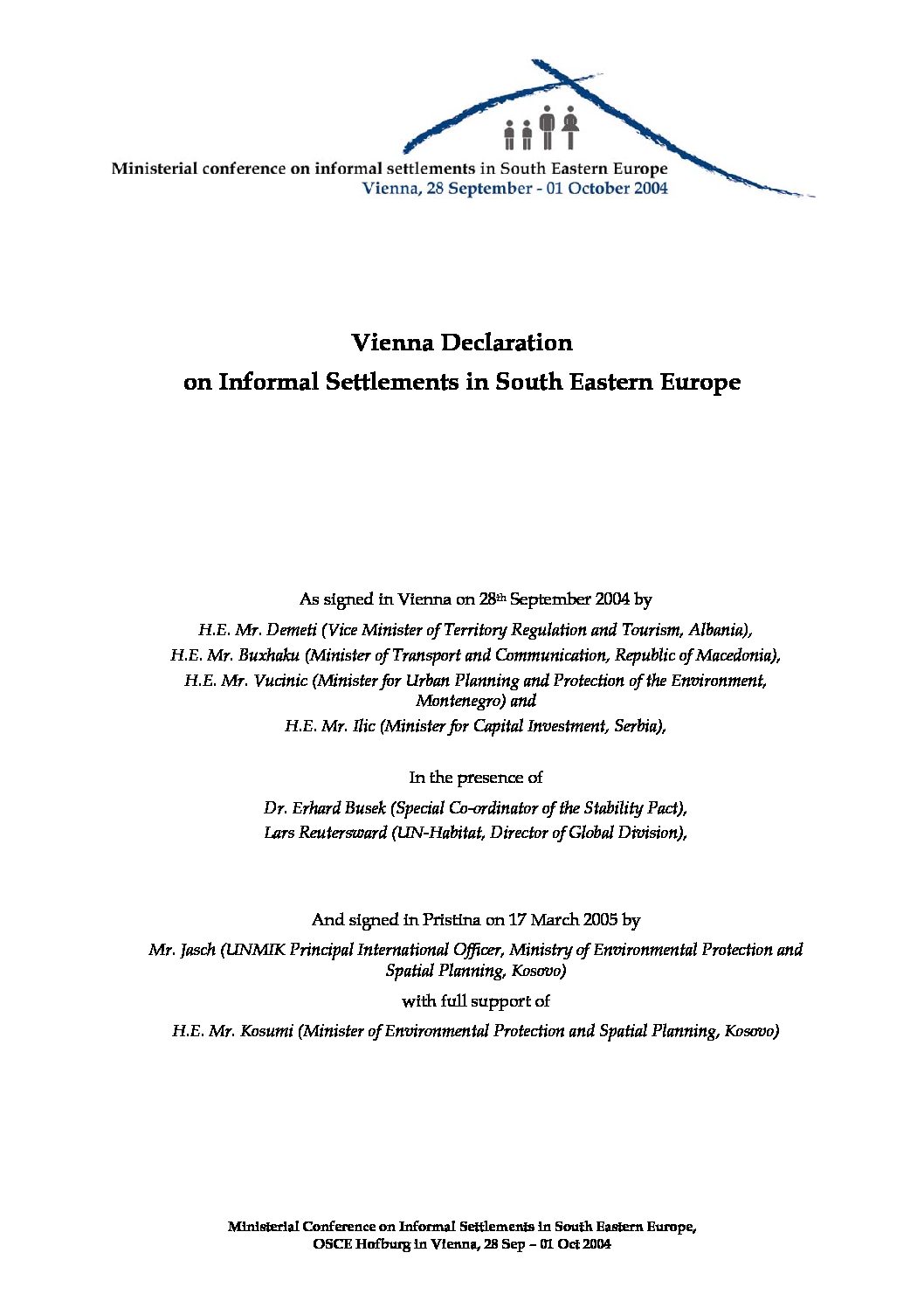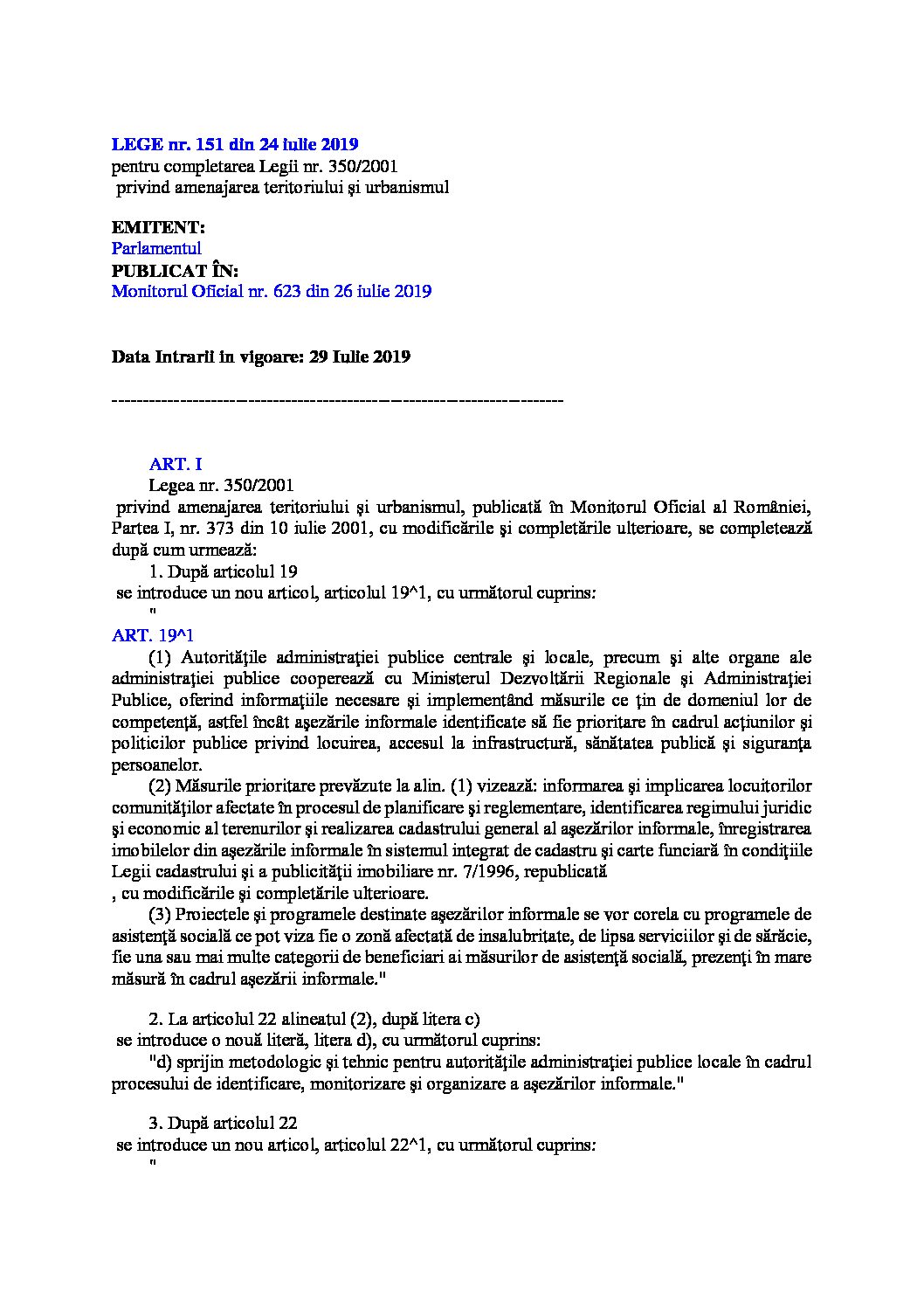Other resources
About informal housing around the world
New York, 31 May 2015
HABITAT III ISSUE PAPERS
22 – INFORMAL SETTLEMENTS
KEY WORDS
Urban poverty, slums, slum dwellers, vulnerable and marginalized groups, socio-spatial exclusion, governance, equity and equality, environmental justice, participatory planning, right to adequate housing, security of tenure, slum upgrading and prevention, inclusive finance, informal economy
Urban poverty, slums, slum dwellers, vulnerable and marginalized groups, socio-spatial exclusion, governance, equity and equality, environmental justice, participatory planning, right to adequate housing, security of tenure, slum upgrading and prevention, inclusive finance, informal economy
Some informations conferning the informal settlements in Southe-Eastern European Countires
FORMALIZING INFORMAL SETTLEMENTS IN EASTERN EUROPE:
Lessons from Experience
Dr Chryssy A Potsiou
Chair of FIG Com3
FIG/WB Conference on “LAND GOVERNANCE IN SUPPORT OF THE MDGS:
RESPONDING TO NEW CHALLENGES”, Washington DC, March 9-10, 2009
Chair of FIG Com3
FIG/WB Conference on “LAND GOVERNANCE IN SUPPORT OF THE MDGS:
RESPONDING TO NEW CHALLENGES”, Washington DC, March 9-10, 2009
January 2010
Informal settlements in post-communist cities: Diversity factors and patterns
In some post-communist cities, the formation of informal settlements is a phenomenon associated with the wave of urbanisation of the 1960s and 1970s. In others, the phenomenon is connected with the influx of immigrants and refugees in the 1990s. Informal settlement areas are the result of various factors: inadequate spatial planning, outdated and complex legislation, housing policies that do not ensure the provision of affordable housing and outdated public administration structures. Illegal construction practices in urban areas, often due to the lack of a clear system of property rights and urban poverty, have created significant challenges in many cities such as Tirana, Belgrade, Tbilisi and Bucharest. This paper presents a typology of informal settlements in post-communist cities and discusses the interrelated economic, social and environmental challenges associated with this phenomenon.
Various types of informal settlements, as well as the evolution of those types, demonstrate the complexity of the problem as well as the need to develop contextually sensitive and diverse solutions. This study presents the emerging related policy responses, including legalisation and inclusion in formal urban planning, the provision of essential social services (e.g., schools and medical clinics), the construction of technical infrastructure (e.g., safe roads, public transit, water and sewage systems) and resettlement programmes as part of social housing. Although these solutions represent various aspects of the policy continuum, they also require significant political will and the financial commitment of central and local
institutions to ensure effective implementation.
Various types of informal settlements, as well as the evolution of those types, demonstrate the complexity of the problem as well as the need to develop contextually sensitive and diverse solutions. This study presents the emerging related policy responses, including legalisation and inclusion in formal urban planning, the provision of essential social services (e.g., schools and medical clinics), the construction of technical infrastructure (e.g., safe roads, public transit, water and sewage systems) and resettlement programmes as part of social housing. Although these solutions represent various aspects of the policy continuum, they also require significant political will and the financial commitment of central and local
institutions to ensure effective implementation.
2010
Informal Urban Development in Europe experiences from albania and greece
The purpose of this study, which was undertaken with Government officials of the respective countries, is to provide just such an in-depth analysis of the situation in two neighbouring countries, Albania and Greece, whose historical and cultural backgrounds vary significantly. The research shows that they are also very different with regard to how they respond to informality in terms of regulations, priorities and political approaches. The study covers the issue of informal development in Greece and Albania at a very detailed level, engaging with all the many complexities and variables associated with the issues and the different systems and institutions. It also gives recommendations for improving these systems.
Informal settlements in countries with economies in transition in the UNECE Region
On 11 May 2012, the Committee on World Food Security endorsed the Voluntary Guidelines on the Responsible Governance of Tenure of Land, Fisheries and Forests in the Context of National Food Security1 (VGGTs). Based on the principles of sustainable development and in recognition of land’s centrality to development, these Guidelines are intended to contribute to global and national efforts towards the eradication of hunger and poverty by promoting secure tenure rights and equitable access to land, fisheries and forests. This technical guide, when prepared, will aim to assist the implementation of VGGT’s principle of land tenure security through responsible governance.
This literature review presents the first preparatory step in the development of potential guidelines for informal settlements based on the principles of the VGGTs. Its aim is to analyze and identify the main themes and issues to be covered by this future guide. The literature review focuses on the UNECE member states with economies in transition. Notably, the EECCA region, consisting of Eastern Europe, Caucasus and Central Asia (including Armenia, Azerbaijan, Belarus); and the Western Balkans (covering Albania, Bosnia and Herzegovina, FYR Macedonia, Montenegro, Serbia).2 Where relevant, the UNECE countries with a long tradition of tackling the challenges of informal settlements and their legalization are mentioned in the context of possible good or emerging practices, notably South European countries, and the New EU member states that have successfully curbed informal construction.
This literature review presents the first preparatory step in the development of potential guidelines for informal settlements based on the principles of the VGGTs. Its aim is to analyze and identify the main themes and issues to be covered by this future guide. The literature review focuses on the UNECE member states with economies in transition. Notably, the EECCA region, consisting of Eastern Europe, Caucasus and Central Asia (including Armenia, Azerbaijan, Belarus); and the Western Balkans (covering Albania, Bosnia and Herzegovina, FYR Macedonia, Montenegro, Serbia).2 Where relevant, the UNECE countries with a long tradition of tackling the challenges of informal settlements and their legalization are mentioned in the context of possible good or emerging practices, notably South European countries, and the New EU member states that have successfully curbed informal construction.
UNITED NATIONS, New York and Geneva, 2009
SELF-MADE CITIES
In search of sustainable solutions for informal settlements in the United Nations Economic Commission for Europe region
This study provides a general overview of the phenomenon of informal settlements in the UNECE region and identifies policy responses to address these challenges. Emphasis is given to practices that can facilitate access to affordable land and housing and improve the livelihoods of residents in informal settlements, and in general to strategies that stand to better the physical, social, economic and environmental situation of informal settlements.
2012
The mapping and enumeration of informal Roma settlements in Serbia
This paper describes five examples of mapping and enumerating
poor informal Roma settlements in Serbia, implemented in the last decade by
non-governmental organizations and Roma associations as a prelude to different
upgrading projects. Their contexts, processes and outcomes are discussed and their
common patterns and approaches are summarized. The characteristics and types of
Roma settlements are described within the framework of the Roma’s poverty and
social exclusion and the lack of adequate responses by national and local authorities
to the difficult housing situation in Roma settlements. This paper considers ways
of overcoming the gap between the need for reliable mapping and enumeration
data and the actual situation, where informal Roma settlements are neither put
on official maps in Serbia nor included in formal records, unlike other city areas.
poor informal Roma settlements in Serbia, implemented in the last decade by
non-governmental organizations and Roma associations as a prelude to different
upgrading projects. Their contexts, processes and outcomes are discussed and their
common patterns and approaches are summarized. The characteristics and types of
Roma settlements are described within the framework of the Roma’s poverty and
social exclusion and the lack of adequate responses by national and local authorities
to the difficult housing situation in Roma settlements. This paper considers ways
of overcoming the gap between the need for reliable mapping and enumeration
data and the actual situation, where informal Roma settlements are neither put
on official maps in Serbia nor included in formal records, unlike other city areas.
About informal housing in Romania
ROMANIAN REVIEW OF REGIONAL STUDIES, Volume XI, Number 1, 2015
HOUSING INEQUALITIES REGARDING THE INFORMAL SETTLEMENTS IN ROMANIA
The emergence and evolution of informal settlements in Romania are the result of a complex of historical and socio-economic factors and of some territorial planning policies dating from the socialist and post-socialist period. The lack of appropriate legislative instruments regarding urban planning, estate restitution and the weak control of the civil engineering department in conjunction with the policy of imposed sedentary life for the Roma population dating from the 50’s and 60’s generated multiple forms of territorialisation of the informal settlements and pronounced dynamics of this phenomenon at national level. The study shows the housing inequalities regarding the informal settlements in proportion to the place of residence, the access to the technical and urban utilities, the defining elements of the social profile of the inhabitants and the legislative and institutional framework that generated the emergence and the current evolution of this territorial phenomenon.
Suditu B., Vâlceanu D.G., 2013, Informal settlements and squatting in Romania: socio-spatial patterns and typologies, in HUMAN GEOGRAPHIES – Journal of Studies and Research in Human Geography , 7.2 (2013), p.65-75
INFORMAL SETTLEMENTS AND SQUATTING IN ROMANIA : SOCIO-SPATIAL FEATURES AND TYPOLOGIES
The emergence of informal settlements in Romania is the result of mix of factors, including the some social and urban planning policies from the communist and post-communist period. Squatting was initially, a secondary effect of the relocation process and demolition of housing in communist urban renewal projects, and also a voluntary social and housing policy for the poorest of the same period. Extension and multiple forms of informal settlements and squatting were performed in the post-communist due to the inappropriate or absence of the legislative tools on urban planning, restitution properties and management of them, and weak control of the construction sector. The study analyzes the characteristics and spatial typologies of the informal settlements and squatters in relationship with the political and social framework of development of these types of housing.
HUMAN GEOGRAPHIES – Journal of Studies and Research in Human Geography 7.2 (2013) 65–75.
INFORMAL SETTLEMENTS AND SQUATTING IN ROMANIA: SOCIO-SPATIAL PATTERNS AND TYPOLOGIES
The emergence of informal settlements in Romania is the result of a mix of factors, including some social and urban planning policies from the communist and post-communist period. Squatting was initially a secondary effect of the relocation process and demolition of housing in communist urban renewal projects, and also a voluntary social and housing policy for the poorest of the same period. Extension and multiple forms of informal settlements and squatting were performed in the post-communist era due to the inappropriate or absence of the legislative tools on urban planning, properties’ restitution and management, weak control of the construction sector. The study analyzes the characteristics and spatial typologies of the informal settlements and squatters in relationship with the political and social framework of these types of housing development.
Institutul Naţional de Cercetare-Dezvoltare în Construcţii, Urbanism şi Dezvoltare Teritorială Durabilă “URBAN-INCERC”, BUCUREŞTI, 2013.
ANALIZĂ PRIVIND AŞEZĂRILE INFORMALE DIN ROMÂNIA – EVALUAREA SITUAŢIEI ACTUALE ÎN VEDEREA FORMULĂRII UNOR REGLEMENTĂRI ŞI INSTRUMENTE DE INTERVENŢIE
FAZA 1: Problematica aşezărilor informale în România în context european
Institutul Naţional de Cercetare-Dezvoltare în Construcţii, Urbanism şi Dezvoltare Teritorială Durabilă “URBAN-INCERC”, BUCUREŞTI, 2014.
ANALIZĂ PRIVIND AŞEZĂRILE INFORMALE DIN ROMÂNIA – EVALUAREA SITUAŢIEI ACTUALE ÎN VEDEREA FORMULĂRII UNOR REGLEMENTĂRI ŞI INSTRUMENTE DE INTERVENŢIE
FAZA 2: RECENZAREA ŞI CARTOGRAFIEREA AŞEZĂRILOR INFORMALE DIN ROMÂNIA
Practices and solutions
UNITED NATIONS, New York and Geneva, 2015
Formalizing the Informal
Challenges and Opportunities of Informal Settlements in South-East Europe
GHID PENTRU IMBUNATATIREA SI LEGALIZAREA ASEZARILOR ROME INFORMALE
Cuprins:
1. INTRODUCERE
2. PRINCIPII DE BAZA ALE IMBUNATATIRII SI LEGALIZARII
3. PROCESUL IMBUNATATIRII SI AL LEGALIZARII
4. PROBLEME COMUNE
ANEXA: GHIDUL DETALIAT AL PASILOR SPECIFICI
1. INTRODUCERE
2. PRINCIPII DE BAZA ALE IMBUNATATIRII SI LEGALIZARII
3. PROCESUL IMBUNATATIRII SI AL LEGALIZARII
4. PROBLEME COMUNE
ANEXA: GHIDUL DETALIAT AL PASILOR SPECIFICI
GUIDELINES FOR THE IMPROVEMENT AND LEGALIZATION OF INFORMAL ROMA SETTLEMENTS
With the adoption of Action Plans on behalf of the Government of the Republic of Serbia
on 27th January 2005 and the signing of the Decade Declaration by the President of the
Government, Serbia joined to the regional program for the improving of the position of
Roma in Central and Southeast Europe “The Decade of Roma Inclusion 2005-2015”. The
participant countries of the program are the Czech Republic, Slovakia, Hungary, Romania,
Bulgaria, Macedonia, Croatia, Montenegro and Serbia.
on 27th January 2005 and the signing of the Decade Declaration by the President of the
Government, Serbia joined to the regional program for the improving of the position of
Roma in Central and Southeast Europe “The Decade of Roma Inclusion 2005-2015”. The
participant countries of the program are the Czech Republic, Slovakia, Hungary, Romania,
Bulgaria, Macedonia, Croatia, Montenegro and Serbia.
Programme for Sustainable Human Settlements, Council for Scientific and Industrial Research (CSIR), South Africa
Informal settlement integration, the environment and sustainable livelihoods in sub-Saharan Africa
This paper forms one part of the CIB funded research on “Understanding the interface between the environment and sustainable livelihoods in the integration of informal settlements in Asia, Latin America and Africa: a review of current thinking and practice”.
Ain Shams Engineering Journal (2015) 6, 1151–1159
Evolution of informal settlements upgrading strategies in Egypt: From negligence to participatory development
Abstract: The issue of informal settlements represents a key challenge not only in Egypt, but also worldwide. A review of informal settlements upgrading policies shows that governments have moved away from eradication policies to provision, enabling and participatory policies. This shift was motivated by the recognition that informal settlements were not a problem but a solution stimulated by the society when the formal housing markets cannot fulfill its demand. In Egypt, despite all efforts to contain the growth of informal settlements, they are steadily growing. This paper aims at mapping the change of informal settlements upgrading strategies in Egypt starting from negligence to contemporary participatory development approaches and housing policies aimed at providing affordable shelter to the urban poor. Additionally, it examines some best practices of informal settlements upgrading projects to find out the influential driving forces affecting the success of these projects that are suitable for scaling up and replication.
GUIDELINES FOR THE IMPROVEMENT AND LEGALIZATION OF INFORMAL ROMA SETTLEMENTS
With the adoption of Action Plans on behalf of the Government of the Republic of Serbia
on 27th January 2005 and the signing of the Decade Declaration by the President of the
Government, Serbia joined to the regional program for the improving of the position of
Roma in Central and Southeast Europe “The Decade of Roma Inclusion 2005-2015”. The
participant countries of the program are the Czech Republic, Slovakia, Hungary, Romania,
Bulgaria, Macedonia, Croatia, Montenegro and Serbia.
on 27th January 2005 and the signing of the Decade Declaration by the President of the
Government, Serbia joined to the regional program for the improving of the position of
Roma in Central and Southeast Europe “The Decade of Roma Inclusion 2005-2015”. The
participant countries of the program are the Czech Republic, Slovakia, Hungary, Romania,
Bulgaria, Macedonia, Croatia, Montenegro and Serbia.
NALAS, 2011
Challenges of regularization of informal settlements in South East Europe
Overview of the relevant urban planning and legalization laws and practice
DIME BRIEF
Upgrading Informal Settlements in South Africa
Over one billion people live in slums. How can we provide effective support to improve their lives? To answer this question, the South African National Department of Human Settlements (NDOHS) has been working with the Development Impact Evaluation Initiative of the World Bank to develop and implement its new program of impact evaluations. The evaluations measure the causal links between the NDOHS’ Upgrading of Informal Settlements Programme (UISP) and empowerment, health and safety, employment, consumption, and productive activities and test innovative interventions within the UISP to learn how best to deliver the program to maximize results.
NALAS – Network of Associations of Local Authorities of South East Europe, 2009
The Legislation and analysis of the implementation of spatial and urban planning in Al bania, Kosovo, Macedonia, Moldova, Republika Srpska and Turkey as compares to the case of Denmark
Policy and legislation
Vienna, 28 September – 01 October 2004
Vienna Declaration on Informal Settlements in South Eastern Europe
PUBLICAT ÎN: Monitorul Oficial nr. 623 din 26 iulie 2019

